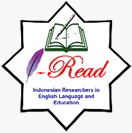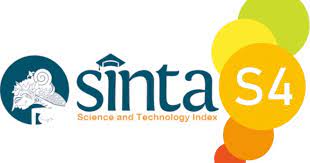Postmodernism Creates Innovative English Teaching Learning by Utilizing ICT
DOI:
https://doi.org/10.22219/englie.v2i1.14627Abstract
Through comprehensive literature review and an examination of both Postmodernism and ICT, it is proposed that the influences of ICT have acted and continued to act to promote Postmodernism. The development of ICT is utilized by education field for teaching learning process. Many teachers and students utilize the existing of ICT as model of teaching and learning especially English. This study discussed about teachers’ belief and students’ belief in using ICT to have innovative English teaching learning. Qualitative descriptive was used in this study. The data was collected by conducting the interview. The participants were five English teachers and five students that chose randomly. The result showed that both teachers’ and students’ belief in using ICT is to make English teaching learning easier, more interesting, and effective.
Keywords:Postmodernism,ICT, teachers’ belief, students’ belief
Downloads
References
Almekhlafi, A. (2006). The effect of Computer-Assisted Language Learning (CALL) on United Arab Emirates EFL school students’ achievement and attitude. Journal of Interactive Learning Research, 17(2), 121-142.
Almekhlafi, A. G., & Almeqdadi, F. A. (2010). Teachers’ perceptions of technology integration in the United Arab Emirates school classrooms. Educational Technology & Society, 13(1), 165-175.
Carter, D. (2012). Literary theory. Oldcastle Books.
Conlon, T. (2000), ‘Visions of Change: Information Technology, Education and Postmodernism,’ British Journal of Educational Technology, 31 (2), 109-116.
Coyne, R. (1998), ‘Cyberspace and Heidegger's Pragmatics,’ Information Technology and People, 11 (4), 338-350.
Floris,F.D. (2014). Using information and communication technology (ICT) to enhance language teaching & learning: An interview with Dr. S. Gumawang Jati. TEFLIN Journal. 25,139-146.
Harman, K., & Koohang, A. (2005). Discussion board: A learning object. Interdisciplinary Journal of E-Learning and Learning Objects, 1(1), 67-77.
Martha García Chamorro (2013). Teachers’ Beliefs and Practices in Technology-based Classrooms: A Developmental View Tamar Levin 2006. Journal of Research on Technology in Education, 39(2), 157–181.
M Banukrishna M and Dhanashree K. 2017. Science, Technology, and Postmodernism. International Journal of Multidisciplinary Research and Development. Volume 4, Page 137-138
Rey (2013). Teachers’ Beliefs and the Integration of Technology in the EFL Class. Bogotá, Colombia. Pages: 51-72
Shifflet, R. & Weilbacher, G. (2015). Teacher Beliefs and Their Influence on Technology Use: A Case Study. Contemporary Issues in Technology and Teacher Education, 15(3), 368-394.
Tarnas, R. (1991), ‘The Passion of the Western Mind: Understanding the Ideas that Have Shaped our World View,’ Random House, London.
Downloads
Published
How to Cite
Issue
Section
License
Copyright (c) 2021 Rahmawati, Y. D.

This work is licensed under a Creative Commons Attribution-ShareAlike 4.0 International License.
Authors who publish with English Learning Innovation (englie) agree to the following terms:
- For all articles published in English Learning Innovation (englie), copyright is retained by the authors. Authors give permission to the publisher to announce the work with conditions. When the manuscript is accepted for publication, the authors agree to automatic transfer of the publishing right to the publisher.
- Authors retain copyright and grant the journal right of first publication with the work simultaneously licensed under a Creative Commons Attribution-ShareAlike 4.0 International License that allows others to share the work with an acknowledgement of the work's authorship and initial publication in this journal.
- Authors are able to enter into separate, additional contractual arrangements for the non-exclusive distribution of the journal's published version of the work (e.g., post it to an institutional repository or publish it in a book), with an acknowledgment of its initial publication in this journal.
- Authors are permitted and encouraged to post their work online (e.g., in institutional repositories or on their website) prior to and during the submission process, as it can lead to productive exchanges, as well as earlier and greater citation of published work (See The Effect of Open Access).
This work is licensed under a Creative Commons Attribution-ShareAlike 4.0 International License.

















1.png)












